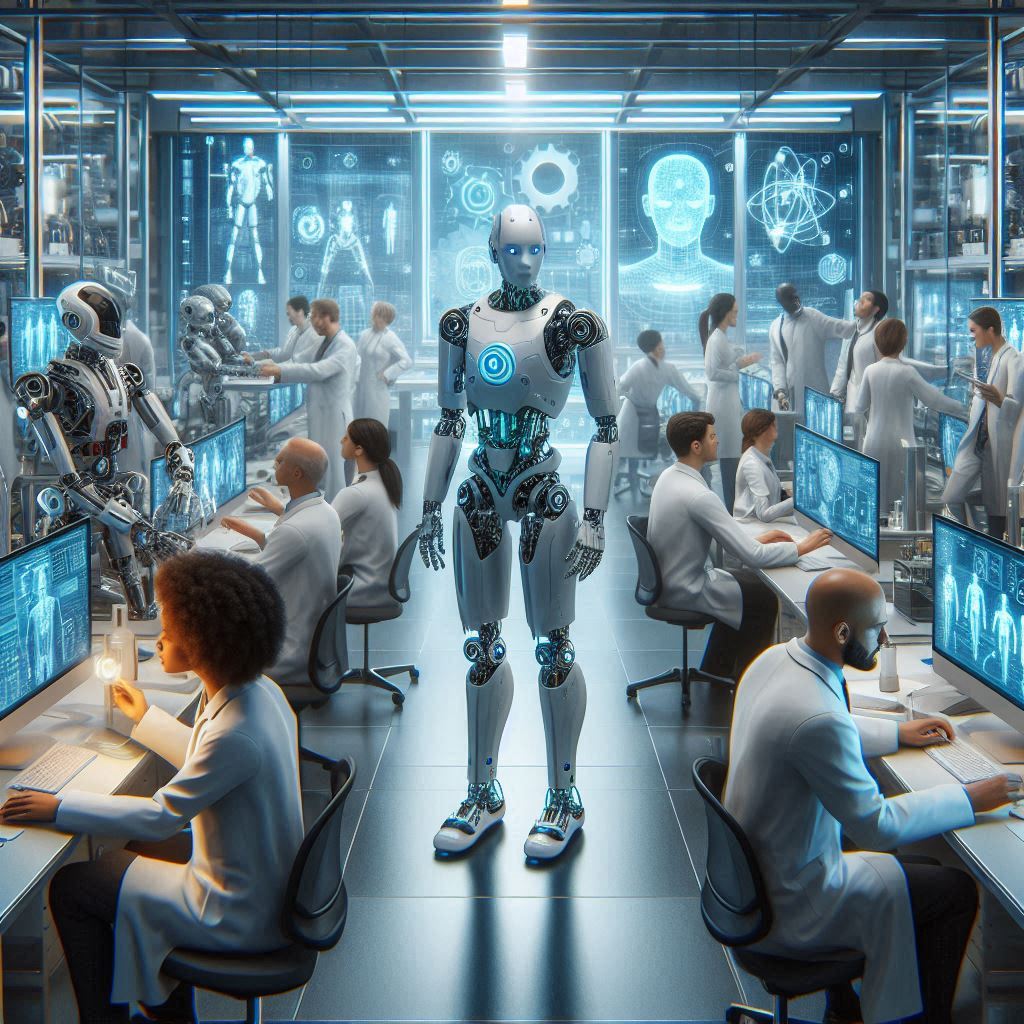Artificial Intelligence (AI) is transforming the world of robotics, enabling machines to perform tasks with unprecedented precision, efficiency, and autonomy. The integration of AI into robotics is creating smarter, more adaptable robots that can revolutionize various industries. In this article, we’ll explore how AI is enhancing robotic capabilities and the exciting possibilities that lie ahead.

The Impact of AI on Robotics
- Enhanced Learning and Adaptation: AI empowers robots to learn from their environment and experiences. Through machine learning algorithms, robots can adapt to new situations, optimize their performance, and improve over time. This ability to learn and evolve makes robots more versatile and capable of handling complex tasks.
- Advanced Perception and Sensing: AI enables robots to process and analyze data from advanced sensors, such as cameras, LiDAR, and ultrasonic sensors. This enhances their perception of the environment, allowing them to navigate, recognize objects, and make informed decisions with greater accuracy.
- Autonomous Decision-Making: AI-driven robots can make decisions independently based on real-time data and predefined criteria. This autonomy allows robots to perform tasks without constant human supervision, increasing efficiency and reducing the need for manual intervention.
- Natural Language Processing (NLP): Through NLP, AI enables robots to understand and respond to human language. This enhances human-robot interaction, making robots more intuitive and user-friendly. Robots can now follow verbal commands, answer questions, and assist with various tasks seamlessly.
Applications of AI-Enhanced Robots
- Manufacturing and Industry: AI-powered robots are transforming manufacturing processes by automating repetitive tasks, optimizing production lines, and ensuring quality control. They can detect defects, predict maintenance needs, and enhance overall productivity.
- Healthcare: In healthcare, AI-driven robots assist in surgeries, diagnostics, and patient care. They provide precise and consistent performance, reducing the risk of human error and improving patient outcomes. AI also enables robots to assist in rehabilitation and remote patient monitoring.
- Agriculture: AI-enhanced robots are revolutionizing agriculture by automating tasks such as planting, harvesting, and crop monitoring. They analyze data from sensors to optimize irrigation, detect pests, and ensure crop health, increasing efficiency and yield.
- Logistics and Supply Chain: In logistics, AI-powered robots streamline operations by automating sorting, packing, and transportation. They optimize warehouse management, reduce errors, and enhance delivery speed, ensuring a seamless supply chain.
- Service and Hospitality: AI-driven robots are making their mark in the service and hospitality industry. They assist with customer service, room service, and cleaning tasks. These robots enhance guest experiences by providing personalized services and efficient support.
The Future of AI in Robotics
The future of AI in robotics is filled with endless possibilities. As technology continues to advance, we can expect even more sophisticated and capable robots. Here are some potential future developments:
- Human-Robot Collaboration: Future robots will work alongside humans in various industries, enhancing productivity and safety. AI will enable seamless collaboration, allowing robots to understand and anticipate human needs and actions.
- Robots in Space Exploration: AI-driven robots will play a crucial role in space exploration, performing tasks such as rover missions, habitat construction, and resource extraction on other planets. They will enable humans to explore and colonize new frontiers.
- AI-Driven Innovation: The continuous development of AI will drive innovation in robotics, enabling robots to perform more complex and diverse tasks. This will lead to new applications and solutions across different sectors.
- Ethical and Social Considerations: As AI-enhanced robots become more prevalent, addressing ethical and social implications will be essential. Ensuring responsible and ethical use of AI in robotics will be a key focus for the future.
Conclusion
The integration of AI into robotics is a game-changer, enhancing robotic capabilities and opening up new possibilities. From manufacturing to healthcare, AI-powered robots are transforming industries and improving our daily lives. As technology continues to evolve, the future of AI in robotics holds immense promise, paving the way for a smarter, more efficient world.
